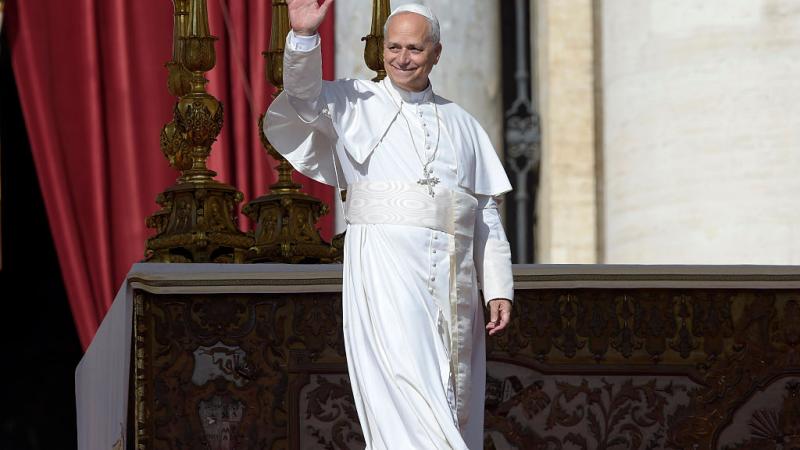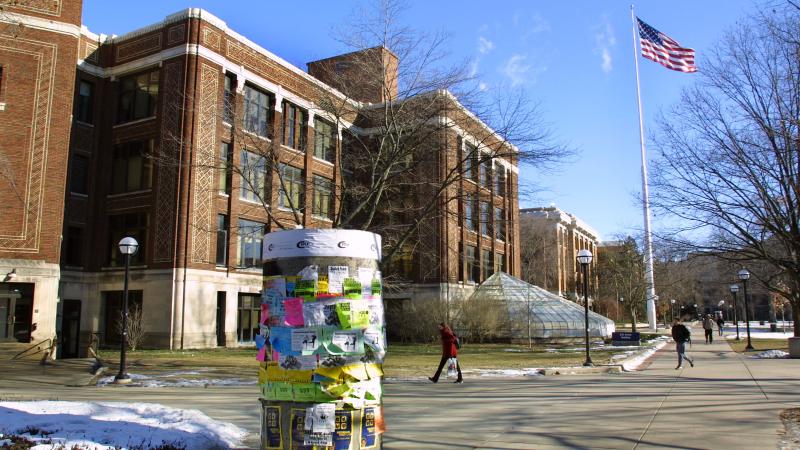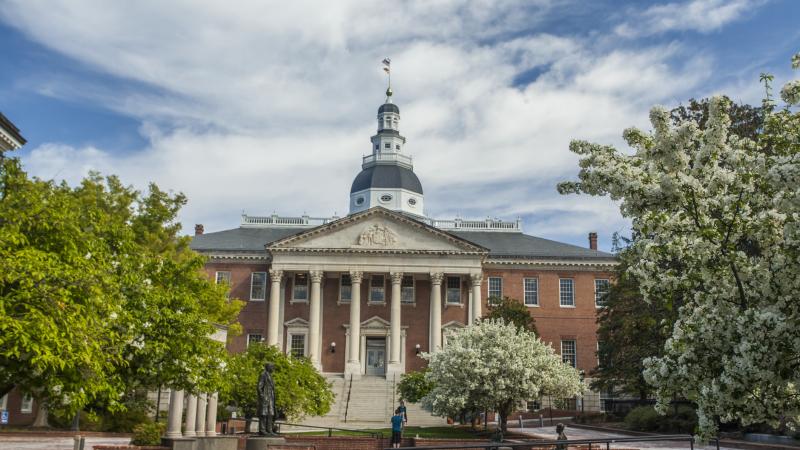Justices warn Maine school choice law may unconstitutionally favor 'watered down' religious beliefs
Maine's tuition assistance program appears to pick and choose between religions based on how evangelistic they are, justices say.
Unitarian Universalist schools can get public money in Maine. Evangelical Christian schools probably can't.
That's how Supreme Court Justice Samuel Alito characterized a state law that provides tuition assistance to families without a local public school, but prohibits that money from being used to send children to "sectarian" schools.
The high court heard oral arguments Wednesday on the constitutionality of Maine's peculiar school choice law, which did not prohibit funding religious instruction for more than 100 years. The state admits it only changed the law in 1981 because of its attorney general's opinion that sectarian funding was unconstitutional.
This system plausibly favors religious schools with "more watered down" beliefs that are unlikely to diverge from a public school's own self-styled values of tolerance and inclusiveness, Justice Neil Gorsuch said, and most of his colleagues seemed to agree.
Making that eligibility call requires state regulators in Maine — and potentially other states with similar tests — to closely scrutinize every applicant's religious beliefs. Washington Post columnist George Will dubbed this a ban on schools that are "excessively serious about religion."
'Denial of opportunity'
The court's liberal wing emphasized that letting parents choose how to use tuition assistance would mean taxpayers funding schools with "overtly" and "proudly discriminatory" policies, as Justice Elena Kagan put it.
Children may be taught "the man is the boss of the woman," said Justice Stephen Breyer, who repeatedly invoked the "60 or 70" religions in the United States. Governments are "going to get into all kinds of religious disputes" if religious schools with polarizing views can get public money.
"This program does not fund schools," shot back Michael Bindas of the Institute for Justice, representing the two families suing the state for tuition assistance. "It funds families, and not a penny can go to any school but for the genuine private choice of individuals."
Justices Clarence Thomas and Kagan asked whether the families can even achieve legal standing, given that their desired schools have not said they would accept public money. Maine Chief Deputy Attorney General Christopher Taub argued that without such "redress," there could be no standing.
When the 1st U.S. Circuit Court of Appeals upheld Maine's law based on the controversial "status-use distinction" between religious identity and religious practice, it explicitly rejected the standing objection based on which schools participate, Bindas responded.
The "denial of opportunity" is the constitutional injury: "There's an absolute barrier at step one." He cited a majority opinion written by Thomas 28 years earlier that deemed "possible lack of fair opportunity" an inherent injury.
The status-use distinction quickly falls apart in any other context, Bindas said: No one would object to a taxpayer-funded school soccer team playing soccer. "Religious discrimination is religious discrimination."
Justice Sonia Sotomayor claimed the litigants are "put to the same choice that every other parent in Maine is put to: Either get a free public secular education or pay for your religious training."
Kagan called the law "a default program for a very small number of students living in isolated areas" without public schools. (SCOTUSblog puts the number under 5,000.) "This was not about providing a substitute for a public education" until the state attorney general deemed the law too broad, Bindas retorted.
Justices tried to suss out what restrictions could pass constitutional muster. Chief Justice John Roberts asked if a state fund for "buildings" could exclude chapels because of their religious purpose. "Direct institutional aid" is different from parent-directed tuition assistance, Bindas said.
The status-use distinction applies in subsidy cases, Kagan said: "Why does that state have to subsidize the exercise of a right?" That's false, Bindas said: The state conditions "the availability of an otherwise available public benefit" — tuition assistance — "on the surrender of a constitutional right," the free exercise of religion.
When Gorsuch noted the state's defense that parents can still send their children to after-school or weekend religious education, Bindas called that an "insulting" defense of discrimination.
Unlike the Supreme Court's Locke ruling, which upheld Washington's ban on using a state scholarship to major in "devotional theology," Maine's law requires the "wholesale exclusion of religion" as determined by a regulator, Bindas said.
Even schools that teach "inclusiveness and diversity through the lens of faith" are prohibited from the Maine program for that religious practice, he told Sotomayor, citing the state's rejection of the Episcopalian Kent School's application.
Gorsuch noted that both Kent and Cardigan Mountain School had chapels, but Maine approved the latter because it claimed the chapel was mainly for assemblies. "So somebody in Maine … has to sit down and decide Cardigan good/Kent bad."
Christianity vs. critical race theory
Maine's Taub faced strong skepticism from Republican-appointed justices when he argued that the state is permitted to choose how it spends its money in service of its public education obligations.
Thomas wondered how the program can be considered a "subsidy" given that Maine has a compulsory K-12 education law. The statutory eligibility term "rough equivalent of a public education" also confused the justice.
Taub said schools that don't promote "one particular set of religious beliefs" are eligible for the program, because religious neutrality is the "defining feature" of public education.
Justice Alito brought up a criticism often leveled against Maine's program — that it pays tuition to elite out-of-state schools such as Exeter and Andover but not local religious schools. That's because they teach science and math the same as Bangor High School, with none "inculcating religion," Taub said.
But the Maine law explicitly picks and chooses between religions, Roberts said: "Religion A" is favored because its mission says nothing about "propagating the faith," while "Religion B" is disfavored because it does propagate the faith. "We have said that is the most basic violation" of the First Amendment's religion clauses.
The chief justice further probed whether a school where "half the classes are religious" would qualify for tuition assistance. When Taub cited mandatory chapel services as a red flag, Roberts asked if a school that taught "a particular view of the Crusades" would be disqualified.
Maine's lawyer became exasperated, asking the court not to judge the case "based on hypothetical situations" rather than the schools that have actually applied. Alito didn't oblige.
"Unless you can say that you would treat a Unitarian school the same as a Christian school or an Orthodox Jewish school or a Catholic school," the justice responded, "then I think you've got a problem of discrimination among religious groups."
Alito raised other funding hypotheticals: schools that teach a "purely materialistic view of life" or critical race theory. "I don't actually know what it means to teach critical race theory," Taub said. The bottom line is that views inconsistent with public education, such as "Leninism or white supremacy," wouldn't get public money.
Deputy Solicitor General Malcolm Stewart argued in favor of the law, saying it's a decision about what to subsidize.
When Justice Brett Kavanaugh said it explicitly discriminates on the basis of religion, Stewart responded that some parents send children to religious schools for nonreligious reasons. "That's slicing it pretty thin in the real world," the justice retorted. Gorsuch suggested it was like distinguishing a tax on yarmulkes from a tax on Jews.
Stewart and Gorsuch also disagreed whether the state law protects or undermines "majoritarian" religions. While the justice said minority religions would face more scrutiny under Maine's law, the Justice Department official said only religions with "critical mass in the community" would get funded if the court strikes down the law.
















